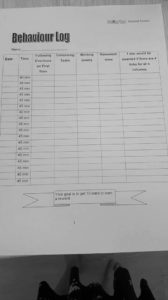Here at Mckaylan, our pupils have benefitted immensely from our comprehensive English Programme. As such, many of them continue their lesssons with us year after year. Although we don’t have many classes (I teach most of the classes and thus there is a limit to the number of classes I can teach in a day), the pupils will plan their schedules around mine. We are very grateful for their strong support. Hence, we would be rewarding our loyal customers with Mckaylan vouchers.
Thank you for your unwavering support.
Chia Shi Juan (Pri 5 to Sec 4 2016)
Janel Teo (Pri 6 to Sec 4 2016)
Eunice Tan (Sec 1 to Sec 4 2016)
Leeroy Tay (Sec 1 to Sec 4 2016)
Keane Yeo (Sec 2 to Sec 4 2016)
Chong Waiteng Sec 4 since Pri 5
Breanna Koh Sec 3, since Pri 5
Seow Ding Xuan Sec 4, since Pri 5
Ryan Leow Sec 3 since Pri 4
Isabel Tay Sec 3 since Pri 4
Ryan Tay Sec 3 since Pri 5
Anisa Niareen, Sec 3 since Pri 6
Licia Tan Sec 2 since Pri 3
Phoedora Liew Pri 5 since Pri 3
Chloe Tan Pri 6 (2016) since Pri 4
Joshua Chua (Sec 3 to Sec 4 2016)
Yeo Bing Heng (Sec 3 to Sec 4 2016 )
Ong Kah Leong (Sec 3 to Sec 4 2016)
Jordan Ong (Sec 4 to Sec 5 2016)
Cassia Ng Sec 4 since Sec 1
Clement Ng Sec 4 since Sec 1
Isabel Lee Sec 4 since Sec 2
Darren Lee Sec 4 since Sec 2
Max Chan Sec 4 since Sec 1
Chloe Ong Sec 2 since Sec 1
Chen Hang Sec 3 since Sec 1
Ezenn Chong Sec 3 since Sec 1
Ace Chow Sec 3 since Sec 1
Vienna Loo Sec 1 since Pri 6
